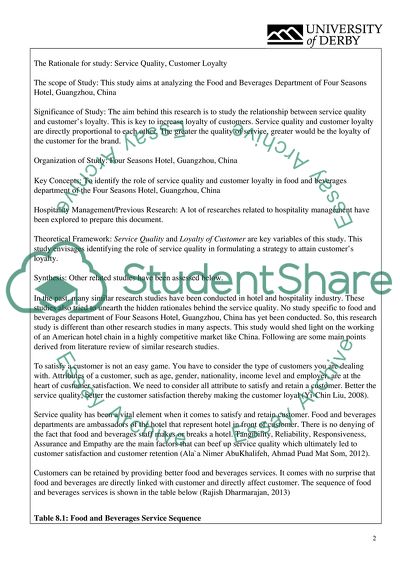Cite this document
(“Four Season Hotel in Guangzhou Thesis Proposal Example | Topics and Well Written Essays - 3750 words”, n.d.)
Four Season Hotel in Guangzhou Thesis Proposal Example | Topics and Well Written Essays - 3750 words. Retrieved from https://studentshare.org/tourism/1658582-an-analysis-of-the-service-quality-that-impact-on-customers-loyalty-of-a-case-study-of-four-season-hotel-in-guangzhou-china
Four Season Hotel in Guangzhou Thesis Proposal Example | Topics and Well Written Essays - 3750 words. Retrieved from https://studentshare.org/tourism/1658582-an-analysis-of-the-service-quality-that-impact-on-customers-loyalty-of-a-case-study-of-four-season-hotel-in-guangzhou-china
(Four Season Hotel in Guangzhou Thesis Proposal Example | Topics and Well Written Essays - 3750 Words)
Four Season Hotel in Guangzhou Thesis Proposal Example | Topics and Well Written Essays - 3750 Words. https://studentshare.org/tourism/1658582-an-analysis-of-the-service-quality-that-impact-on-customers-loyalty-of-a-case-study-of-four-season-hotel-in-guangzhou-china.
Four Season Hotel in Guangzhou Thesis Proposal Example | Topics and Well Written Essays - 3750 Words. https://studentshare.org/tourism/1658582-an-analysis-of-the-service-quality-that-impact-on-customers-loyalty-of-a-case-study-of-four-season-hotel-in-guangzhou-china.
“Four Season Hotel in Guangzhou Thesis Proposal Example | Topics and Well Written Essays - 3750 Words”, n.d. https://studentshare.org/tourism/1658582-an-analysis-of-the-service-quality-that-impact-on-customers-loyalty-of-a-case-study-of-four-season-hotel-in-guangzhou-china.


